


Tirunelveli
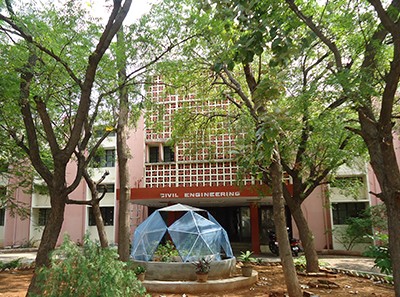 The department has been incepted in the year 1981, which is producing daring and dynamic professionals. Our department is having sophisticated infrastructural facilities, lasting technologies and computer laboratory. Our students are trained with modern instruments like Total Stations, DGPS, Automatic levels, Digital Hardness Testing machine.
The department has been incepted in the year 1981, which is producing daring and dynamic professionals. Our department is having sophisticated infrastructural facilities, lasting technologies and computer laboratory. Our students are trained with modern instruments like Total Stations, DGPS, Automatic levels, Digital Hardness Testing machine.
Our goal is to impart comprehensive knowledge for the technical advancement in the field of Civil Engineering to face the challenging problems of nature at global level with leadership qualities and better practice abilities.
The department is a gathering of meritorious students with eminent grey matter. The department, besides having well qualified faculty, also has laboratories that are well equipped with modern sophisticated instruments to face new challenges in frontier research. About seven laboratories, managed by respective professors and trained technicians, are well equipped to take up the new challenges in research.
Every year our students are securing University ranks. There are 14 rank holders in our department in 2012-2013. The first three toppers S.CHINDAMBARA SELVI, G. NANDHINI & M.CHELLAPANDIAN have secured 4th, 11th and 13th rank respectively.
The Civil Engineering Association of our department is an important forum in exposing the innovative ideas of our students. CEA is organizing weekly seminars, group discussions, Guest lectures by eminent personalities, Aptitude tests and Quiz programs. A national or state level technical symposium is held every year.
Our Vision is To impart comprehensive knowledge for the technical advancement in the field of Civil Engineering to face the challenging problems of nature at global level with leadership qualities and to serve the society with high ethical and professional integrity. .
 |
Dr. C.Meiaraj, M.E.,Ph.D., Professor(CAS) and Head |
| Area of Specialization | Water Resources Engineering |
| Email ID | cmeiaraj@gcetly.ac.in |
| Contact Number | 9994233428 |
 |
Dr.S.Mariraj Mohan, M.E., Ph.D., Associate Professor |
| Area of Specialization | Biological Treatment of wastewater; Air pollution monitoring and modelling; Physico-Chemical Treatment of water and wastewater |
| Email ID | mari_sundar@yahoo.com |
| Contact Number | +91-9865186845 |
| Vidwan Profile | Click to View |
 |
Dr.S. Pauline, M.Tech., Ph.D., Associate Professor |
| Area of Specialization | Environmental Engineering |
| Email ID | pauline@gcetly.ac.in |
| Contact Number | 7708594001 |
 |
Dr. T. SeethaLakshmi,M.E.,Ph.D., Assistant Professor |
| Area of Specialization | Structural Engineering |
| Email ID | seethalakshmi@gcetly.ac.in |
| Contact Number | 9976725321 |
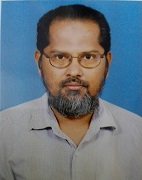 |
Dr. E.Mohamed Najeeb, M.E.,Ph.D., Assistant Professor |
| Area of Specialization | Structural Engineering |
| Email ID | najeeb@gcetly.ac.in |
| Contact Number | 8610001904 |
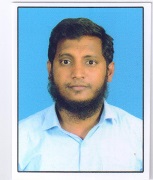 |
Dr. M.Mohamed Younus,M.E.,Ph.D., Assistant Professor |
| Area of Specialization | Structural Engineering |
| Email ID | mohamedyonus@gcetly.ac.in |
| Contact Number | 9751889826 |
 |
Dr. M.Murugan, B.E., M.E., Ph.D. Assistant Professor |
| Area of Specialization | Concrete Technology, Structural Engineering and Geotechnical Engineering |
| Email ID | murugan@gcetly.ac.in |
| Contact Number | 9842282191 |
 |
Dr. M. Sasi Rekha,M.E.,,Ph.D., Assistant Professor |
| Area of Specialization | Structural Engineering |
| Email ID | sasirekha@gcetly.ac.in |
| Contact Number | 7010852312 |
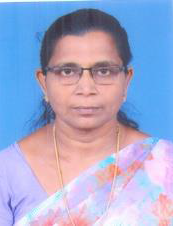 |
Dr. K. Sumangala,M.E.,Ph.D., Assistant Professor |
| Area of Specialization | Structural Engineering |
| Email ID | sumangala@gcetly.ac.in |
| Contact Number | 9486628431 |
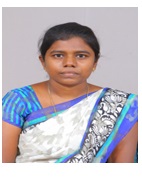 |
Ms. J. Jayasuriya M.E., Temporary Assistant Professor |
| Area of Specialization | Enviromental Engineering |
| Email ID | jayasurya.civil@gcetly.ac.in |
| Contact Number | 8903789971 |
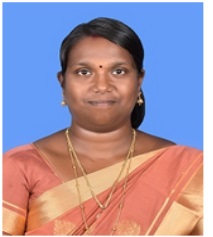 |
Ms. A.Michline Reega M.E., Temporary Assistant Professor |
| Area of Specialization | Structural Engineering |
| Email ID | michlinereega@gmail.com |
| Contact Number | 8220496613 |
 |
Dr. M. Priya ME, PhD., Temporary Assistant Professor |
| Area of Specialization | Environmental Engineering |
| Email ID | Priya.civil@gcetly.ac.in |
| Contact Number | 8973756571 |
 |
Mrs. M.Thangarani M.E., Temporary Assistant Professor |
| Area of Specialization | Structural Engineering |
| Email ID | mthangarani1982@gmail.com |
| Contact Number | 9894817682 |
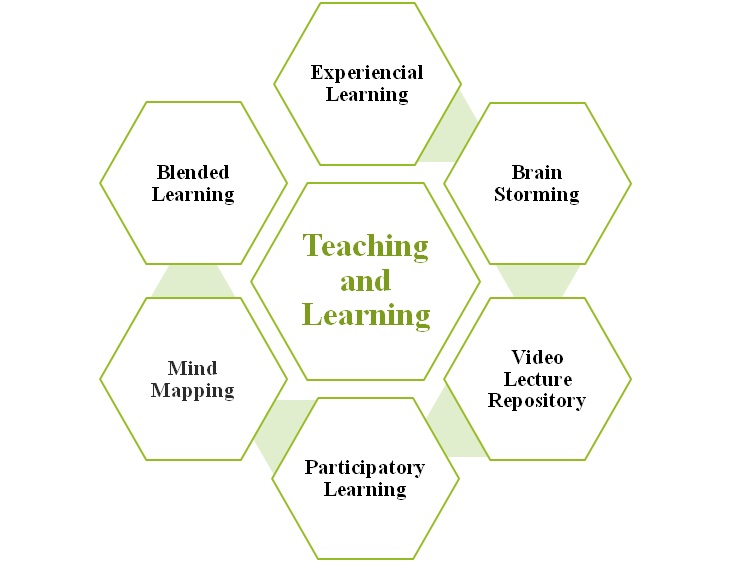
Experiential learning is the process of learning by doing. engaging students in hands-on experiences and reflection, they are better able to connect theories and knowledge learned in the classroom to real-world situations. Learning tools are
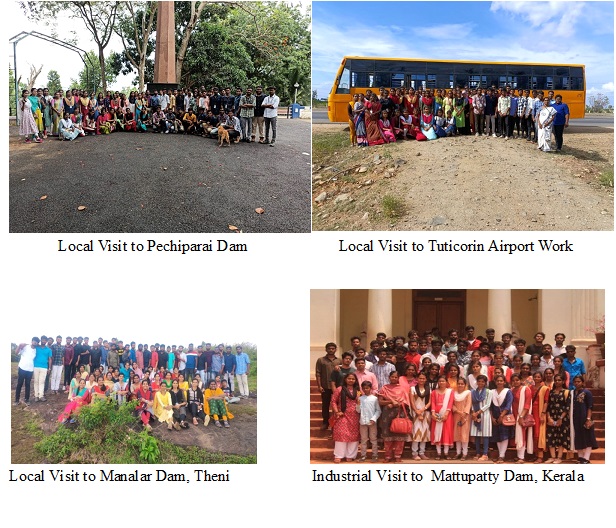
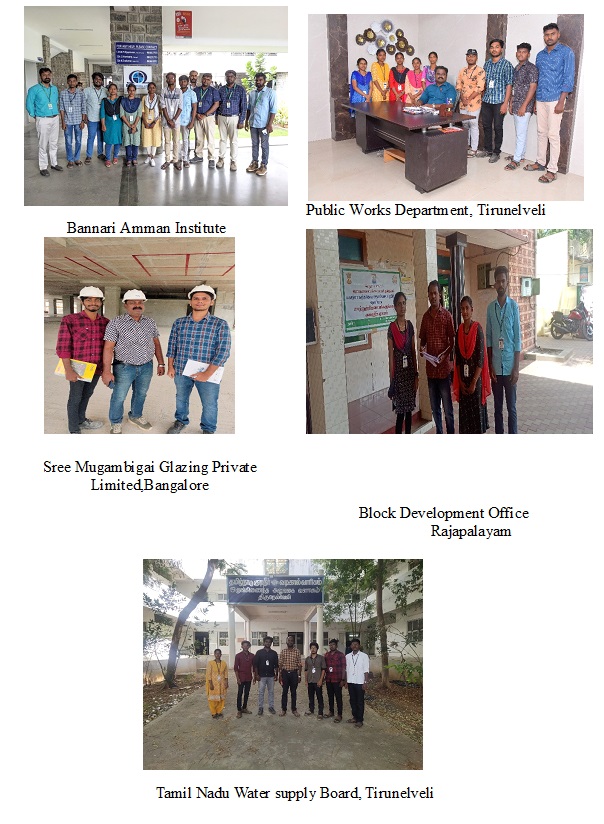
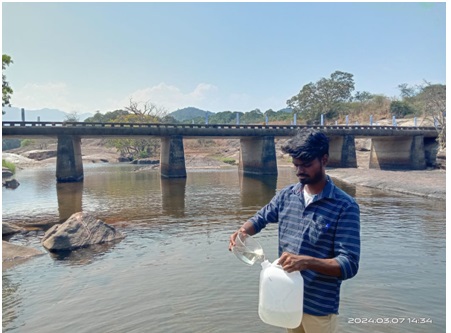
The LEAP team works in multi-disciplinary teams to solve real problemsof society and deliver working prototypes within given time and cost constraints. The students of Government College of Engineering, Tirunelveli developed various working prototypes.
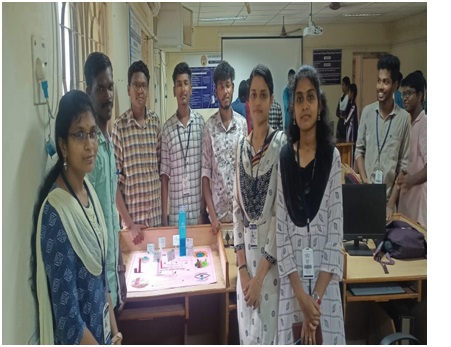
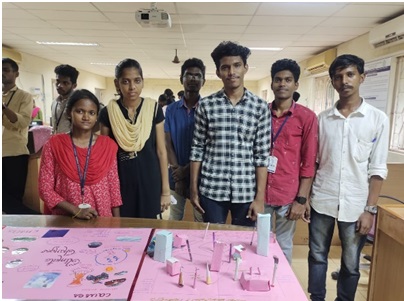
The Participatory Learning Approach (PLA, pronounced “play”) engages students as active participants in the full life cycle of homework, projects and examination. PLA's core idea is that students design the questions or projects, execute them, and then assess and grade their peers' solutions.
Technical project exhibition, TECH EXPO, to encouragestudents to think critically and devise solutions to real-world problems
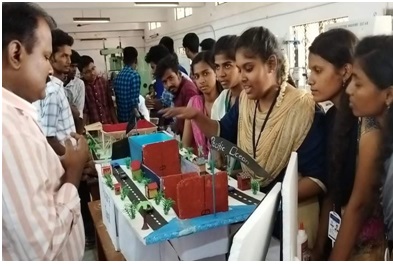
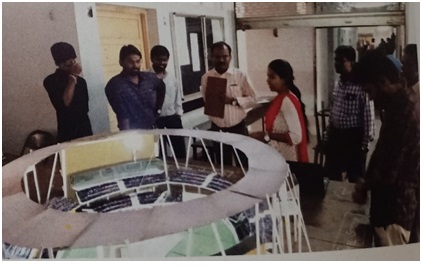
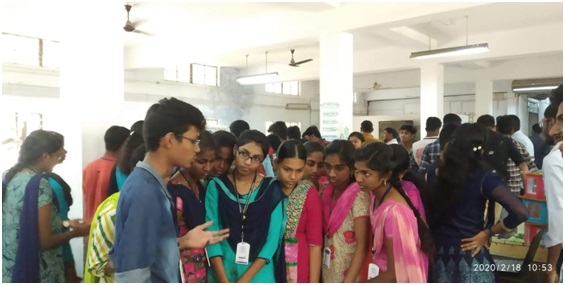
Eminent resource persons and alumni from industry and academic institutions are invited to conduct guest lectures, workshops, and webinars.
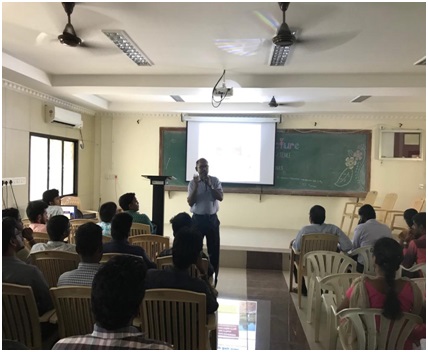
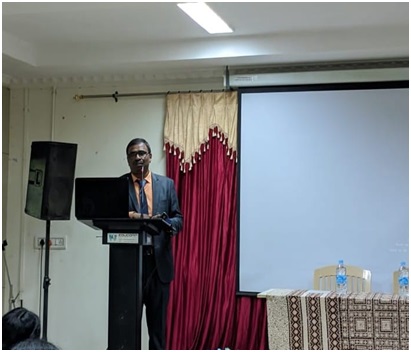
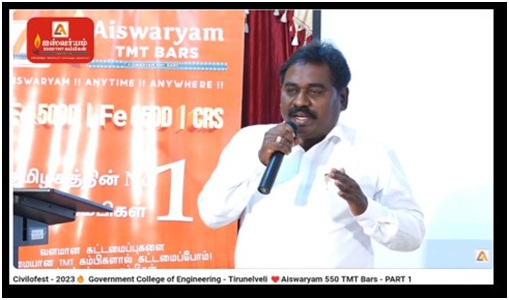
The chief minister of Tamil Nadu introduced the ambitious Tamil Nadu Naan Mudhalvan Scheme for skill development.The primary goal of the Tamil Nadu Naan Mudhalvan Scheme is to identify, train, and provide career and academic guidance to talented students enrolled in government-run and state-run educational institutions.
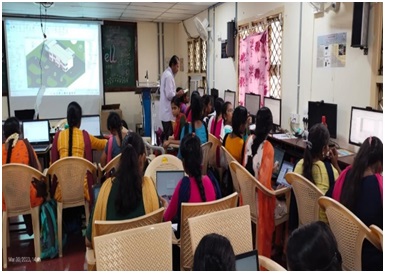
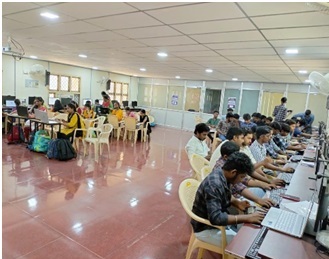
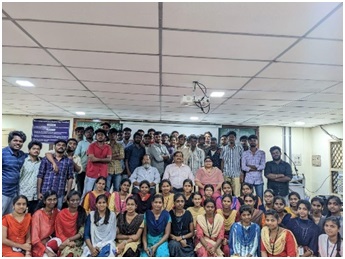
Brainstorming is a method of generating ideas and sharing knowledge to solve a particular commercial or technical problem, in which participants are encouraged to think without interruption. Brainstorming is a group activity where each participant shares their ideas as soon as they come to mind.
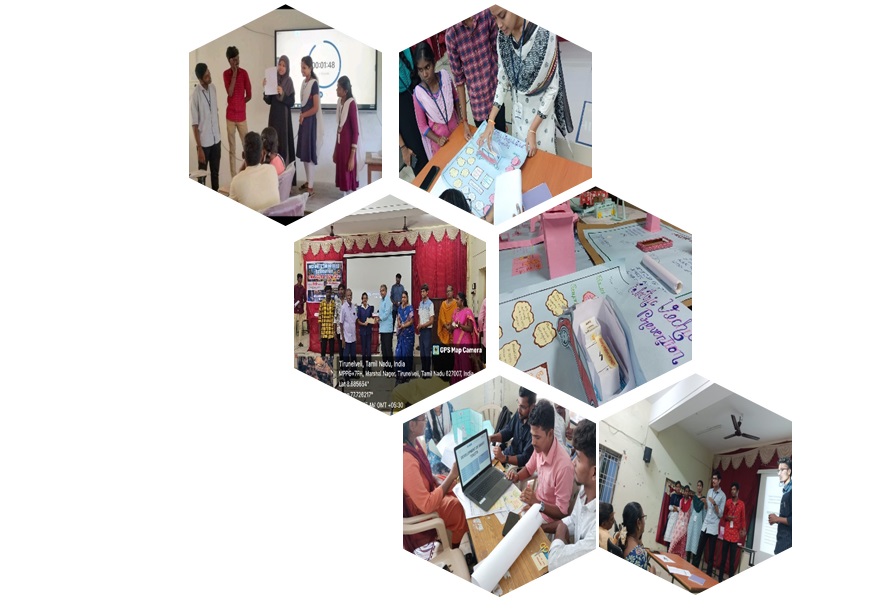
Mind mapping is about capturing keywords and essential information, not writing long perfect sentences.
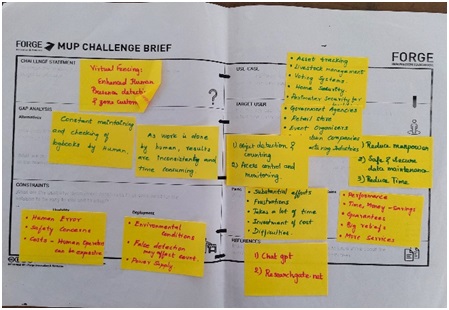
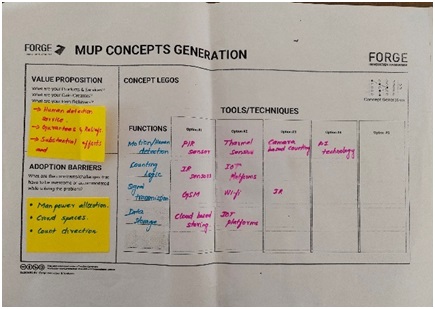
Blended learning, is a combination of face to face teaching and making use of Online resources. Face to Face Teaching Tool:
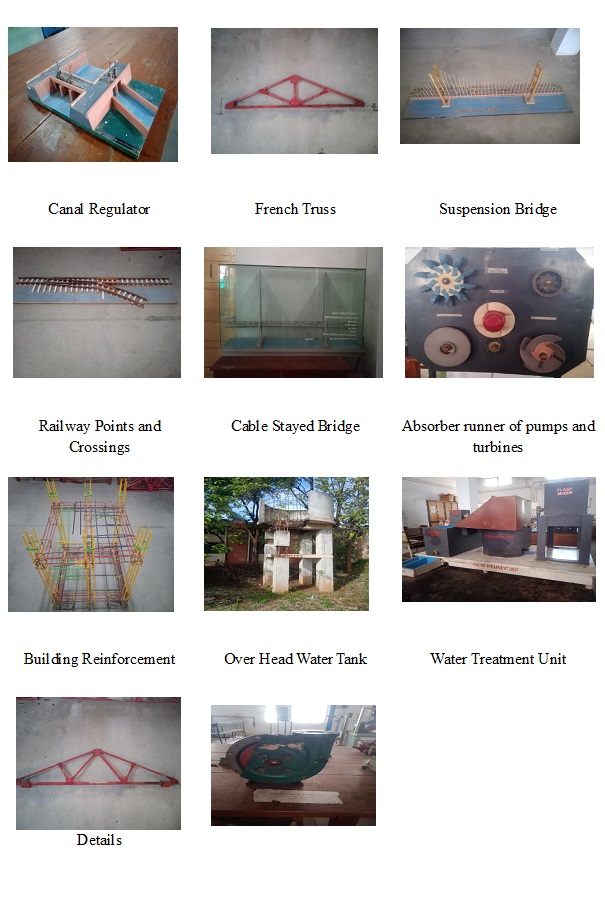

The laboratory of Surveying is well equipped with all the required instruments and tools that are helpful in the overall understanding and practical knowledge of a student.
The Surveying Lab consists of assortment of state-of-the-art equipment for performing various engineering measurements. This equipment includes four total station instruments for obtaining angle and distance measurements, four automatic engineering levels, a tripod-mounted laser level, a hand-held laser distance meter, and three hand-held, mapping-grade GPS units. Ancillary equipment, such as tripods, reflective prisms, and leveling-staff are also available.

Soil mechanics is a discipline that uses the principles of mechanics to describe the behavior of soil on an engineering scale. Branch of Science dealing with the structure, engineering properties, and reactions (behavior) of soil under loading and weathering. This studies theoretically and practically soils for building of structures over it. Knowledge of physics, mechanics, and hydraulics applied to study the behavior of soils. Also called Geo-Technique (Geo-Tech Engineering) Studies the mutual interaction of soils and structures. The practice of Engineering that applies the principles of soil mechanics to the design of engineering structures is called soil mechanics Engineering or Geotechnical Engineering.

To introduce students to how the common environmental experiments relating to water and wastewater quality are performed. This course will help students know which tests are appropriate for given environmental problems, statistically interpret laboratory results and write technical reports, and apply the laboratory results to problem identification, quantification, and basic environmental design and technical solutions
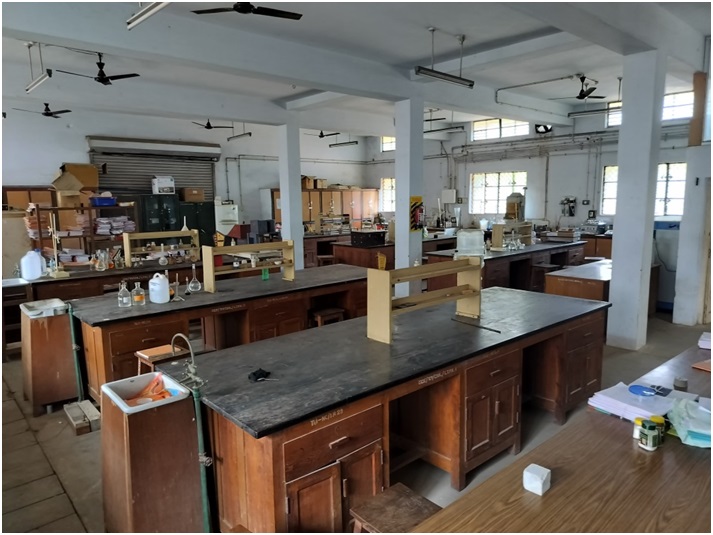
Strength of material laboratory provides the basic knowledge of strength of materials and the students can perform different tests on a variety of materials. Experiments are performed to measure the properties of materials such as impact strength, tensile strength, compressive strength, hardness, etc. The laboratory is equipped with a Universal Testing Machine, Compression Testing Machine, Hardness Testing Machine, Rebound Hammer etc.,
This branch of science helps to understand the behavior of a material under load, and determines its range of useful applications, Moreover, explains the properties of a material by manufacturing processes or the composition of the material itself. The Strength of material laboratory is effectively utilized by undergraduate students in learning the principles and procedures involved in the various material tests conforming to the standards.
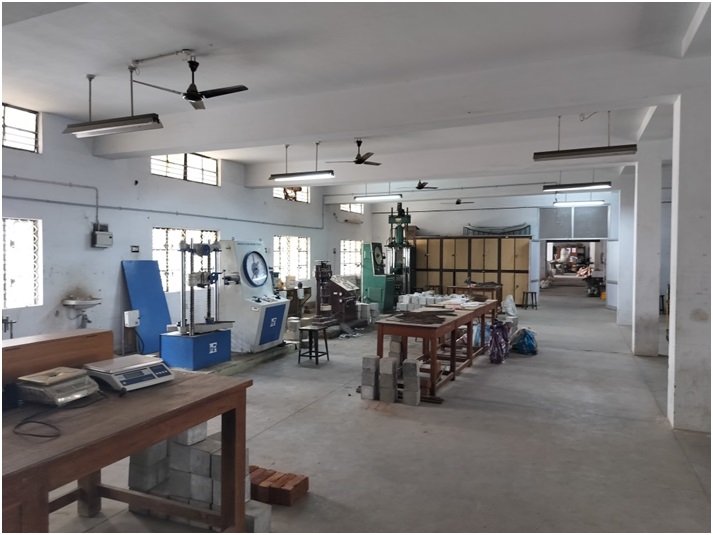
Fluid mechanics has a wide application in the field of engineering. Hydraulic engineering consists of the application of fluid mechanics to water flowing in an isolated environment (pipe, pump) or an open channel (river, lake, ocean). Civil engineers are primarily concerned with open channel flow, which is governed by the interdependent interaction between the water and the channel.
Applications include the design of hydraulic structures, such as sewage conduits, dams, and breakwaters, the management of waterways, such as erosion protection and flood protection, and environmental management, such as the prediction of the mixing and transport of pollutants in surface water. Hydroelectric-power development, water supply, irrigation, and navigation are some familiar applications of water resources engineering involving the utilization of water for beneficial purposes. More recently, concern for preserving our natural environment and meeting the needs of developing countries has increased the importance of water resources engineering.
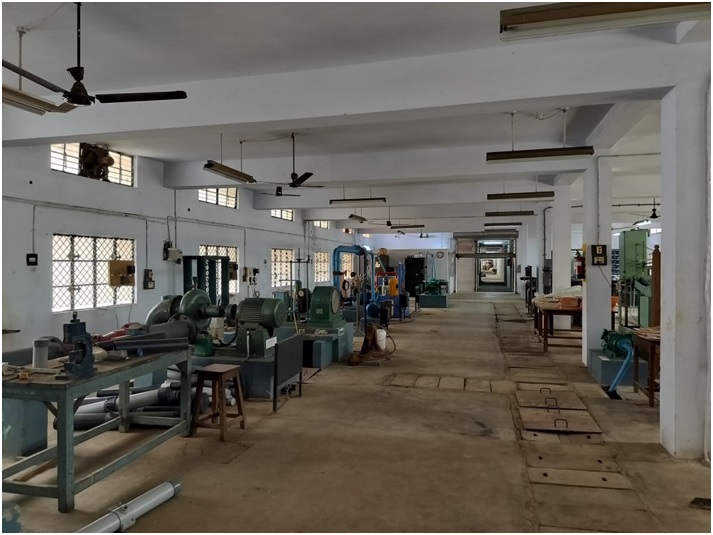
Construction materials testing involves the essential examination of all structural materials used in the construction of a project. Students need to ensure that a certain member can withstand certain conditions and comply with increasingly complex national and international building standards and regulations.
Product testing and certification assures manufacturers, property owners, and developers that the construction materials used in their projects can meet these quality, safety, and environmental sustainability requirements.
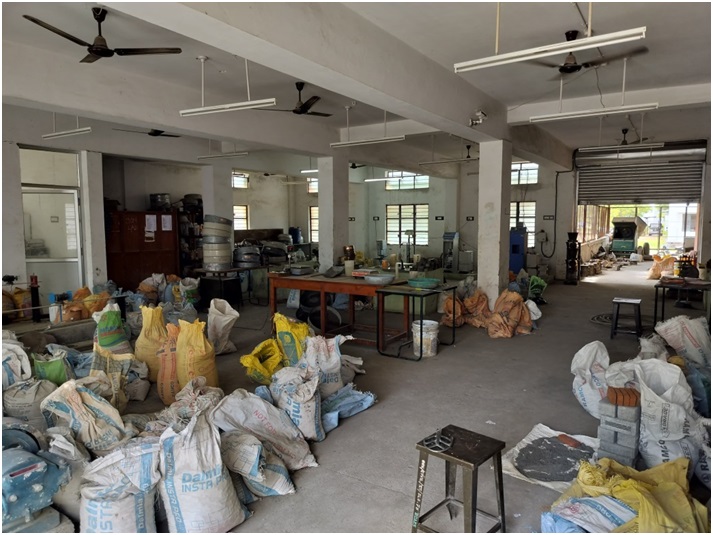
The Highway Engineering lab has the equipment required to conduct all standardized tests to assess the quality of highway materials, pavement evaluation, and traffic engineering studies. Experiments are conducted in the pre-, during- and post-construction phases of highways. The Highway Engineering lab does quality assurance and quality control tests for the Roads. Well-equipped safety and security standards are applied in the Transportation and Highway Engineering Laboratory to ensure the safety and security of our students. Bring students to the level of industrial standards in the field of Transportation Engineering. Provide a platform for the integration of academics and research. Enhancing the ability of students to apply appropriate methods of analysis to raw data deduced from experiments. At the end of the course, students would be able to carry out testing procedures correctly. Significance of testing in the design and infrastructure of transportation engineering projects.
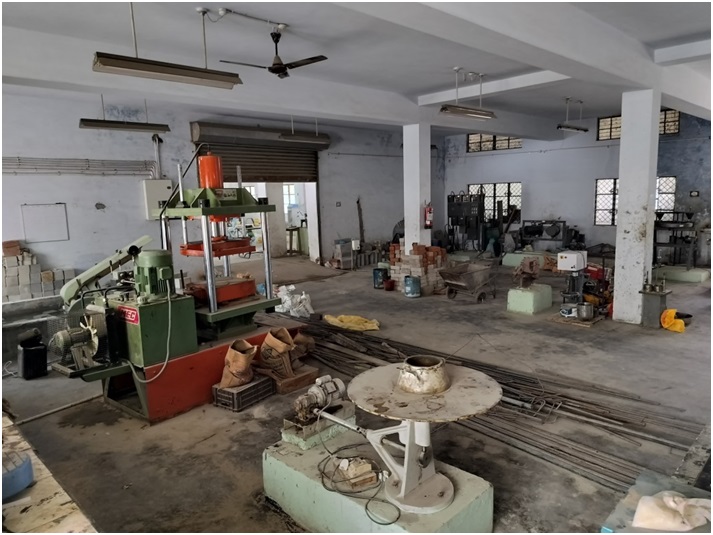
No. of Students(B.E) :
Copyright 2021 © GCE - Dept of CSE | All Rights Reserved.